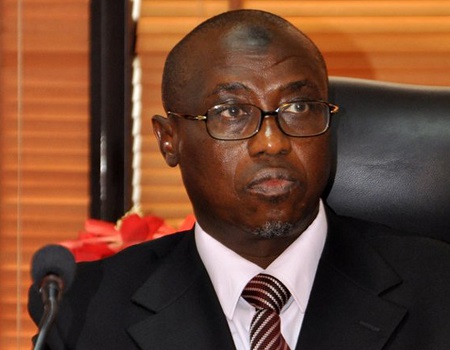
Group Managing Director of the Nigerian National Petroleum Corporation (NNPC), Dr Maikanti Baru, recently suggested guidelines for Nigeria to achieve the much desired diversification of its economic base away from the vulnerability and fragility of oil and gas revenue.
Speaking at the 40th Pre-Convocation Lecture of the Ahmadu Bello University in Zaria, Baru, said Nigeria must seek to diversify the portfolio of economic activities, reduce dependency on mono-sector and take advantage of new opportunities advanced by technology.
While delivering his lecture titled: ‘Oil & Gas Industry and the Nigerian State: Enduring Value, Promoting Economic Integration and Social Stability’, Baru regretted that the perennial complete dependence on oil as our main source of national income had remained a fundamental problem to the Nigerian economy.
He, however, expressed optimism that the foundation for long term economic growth through its tripod agenda of ensuring security, curbing corruption and growing the economy had been well articulated in the 2017 – 2020 Economic Recovery and Growth Plan of the present administration.
The GMD listed the recipes to include: investments in infrastructure which entails improving transportation network and access to power and other utilities which would reduce the cost of doing business and improving competitiveness; promoting agricultural growth because agriculture is still the sector that employs the largest share of the labour force in most developing and transiting economies, including Nigeria.
“Improving agricultural productivity and commercialisation, and linking producers to markets are among some of the important measures required in this regard. Examples of countries such as Chile and Malaysia confirmed the proposition that a healthy rural economy is necessary for industrialisation because the linkages between the two are obvious,’’ he said.
He also professed that economic diversification that embraced various sectors such as agriculture, mining, and manufacturing could rescue the nation from the current economic doldrums.
He said it was this strategy that had the potential of creating jobs for the teeming unemployed population of the youths, as well as boosting the foreign exchange earnings of Nigeria.
Other options for diversification listed by the GMD included: encouraging entrepreneurship and innovation through improved access to information communication technology, finance and research and development; promoting private investment in non-extractive sectors through improving the business and regulatory environment, providing better access to finance, and supporting entrepreneurship and skills development.
He added that Regional Economic Cooperation (RECs) was another factor which could enable the attainment of economic diversification by creating common markets, pooling resources, and providing a framework to coordinate the Regional management of infrastructure such as transportation corridors, energy and natural resources.
Dr Baru stated that a good recipe for economic diversification should include increased investments in education, especially science, technology, technical and vocational education.
On the role of the university in promoting economic diversification, revenue growth and job creation, the GMD noted that Nigeria’s dream would not be fully realized without the deliberate contribution of the academia.
“Our Universities must move from certificate awarding institutions and take leading position in strengthening the foundation for National prosperity through innovation and entrepreneurial education. These days, no nation can move forward by mass-producing graduates, who cannot move on their own until they are pushed”, he said.
PwC Nigeria to host 8th Power Utilities Roundtable
Professional services firm, PwC Nigeria, has announced plans to host the 8th edition of its Annual Power and Utilities Roundtable.
The event, which is part of the firm’s contribution to the on-going reforms in the Nigerian power sector, is slated to hold on Thursday, 30th November 2017 in Lagos.
The theme of this year’s roundtable, according to a statement released by the firm, is “The Pathway to Recovery”. The roundtable will bring together key stakeholders in the power sector to discuss the issues prevalent in the sector with the aim of proffering solutions and charting a pathway forward, especially as the country recovers from recession.
Speaking on the event, Partner and Power Sector leader, PwC Nigeria, Pedro Omontuemhen, said reliable power supply has remained a mirage years after the privatisation of government-owned power assets.
“The challenges include gas supply disruptions, weak transmission infrastructure, inappropriate pricing, power theft, slow grid extension and access to foreign exchange among others.
“For us as a firm, we are committed to helping to solve this important national problem and this informs our hosting of this forum for eight years running. The aim is to bring together stakeholders in the sector, to brainstorm on the issues and come up with viable solutions,” he said.



